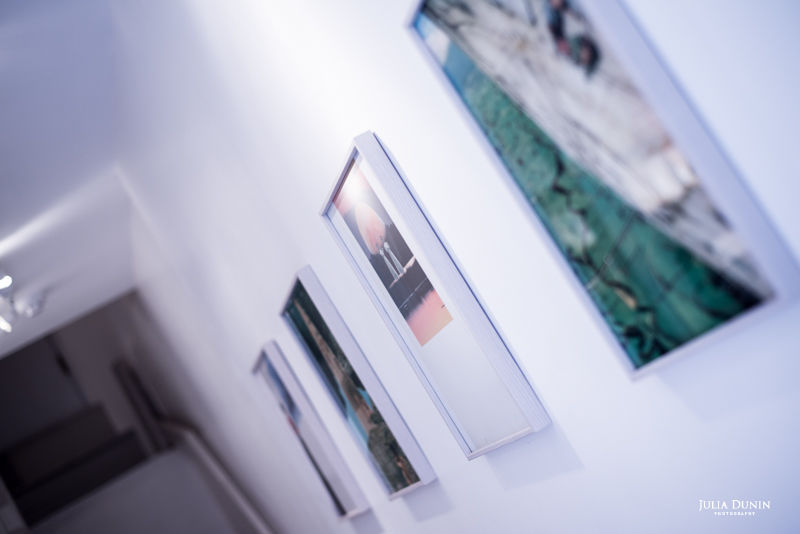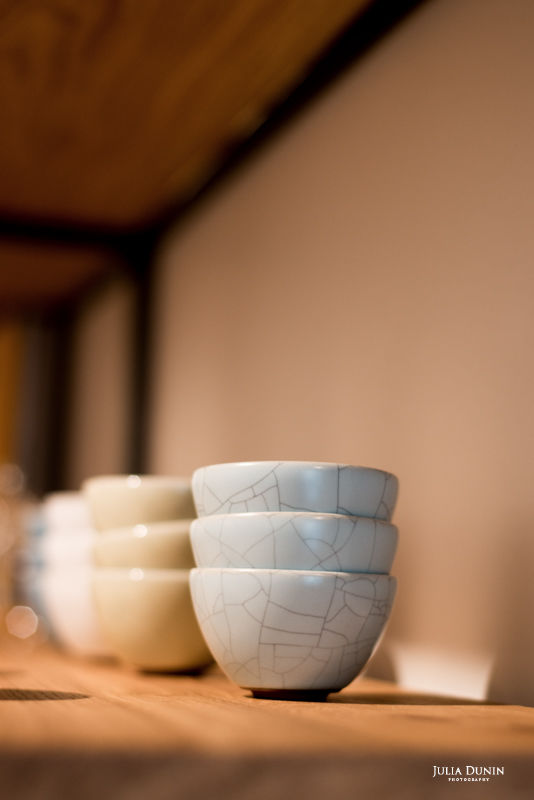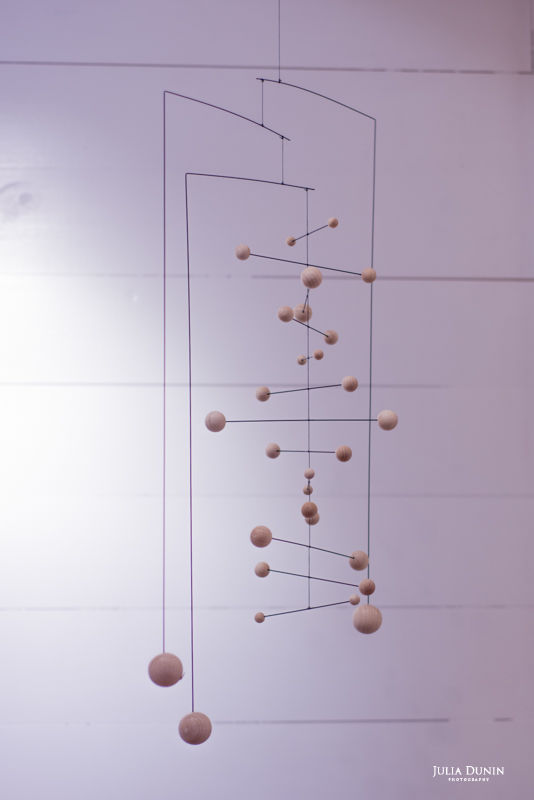Daniel Ulrichs – Owner, Coffeewerk + Press
Daniel Ulrichs is the owner of Coffeewerk + Press on Quay Street, the coffee shop, design shop and gallery space. He also owns and runs The Wooden Heart toy shop on Quay Street.
As part of Galway Design Week Daniel is hosting Meet the Maker series at Coffeewerks+Press.
More from...
Describe your path to where you are today?
My parents are German, but I was born here. I have 3 brothers, one of which is a twin. We went to school in St Nicolas’ primary, which was as multicultural as you could get in Galway at the time. We went to secondary school in Loughrea, as my parents lived there, but I didn’t enjoy it. Going to school in Loughrea and Galway City was like night and day at the time. So I went back to Galway to finish school. I studied Art in GTI, but I wasn't really interested at that time in my life in bogging down and learning all the technical aspects, so I dropped out of that, then worked for a couple of years to save enough money to go travelling. I went to Cuba and studied music for a couple of months, then went to London to study music there too. I went to Germany and studied at a university in Berlin, then I went back to London and did another course in music and worked at a music university, where I got to know lots of musicians. I met people from all over the world there, guys who played with Parliament, Funkadelic, James Brown.
When my father fell ill in 2008, I was working in London and my brothers were busy with their own careers, so I decided I'd come back and look after the Wooden Heart for him for a couple of months. He began to recover but, for me, it was very important for him not to step back into the workforce. He was coming of age to go into retirement, so I had a long think about it and decided I'd come back to Ireland.
So where did the idea for Coffeewerk + Press come from?
The idea for this shop came through sitting in the Wooden Heart a lot. I wanted something with a social aspect, something that was a little more interactive. With Coffeewerks + Press, I wanted to do everything at a very high level, and I also wanted create a dialogue. Doing something that's consumable like coffee, you get a certain amount of people coming in on a daily basis, and they can then have an interaction with our products. I never wanted it to be for a certain demographic; I wanted it to be open to everyone - everyone drinks coffee - whether they're on the dole, whether they're millionaires, it doesn't matter. The Wooden Heart is very specialised and attracts a certain group in society, whereas this is a bit different; we get people from all different parts of society, and that's really nice.
They can have their own dialogue with the products, with the design, with the way that we created it - to see that there's a different way of doing things, to see that you don't have to do things in a mediocre fashion and make loads of money. So money is important, but for me, it's more about the interaction that the customers have within the space. That's very fulfilling. You meet fantastic people. Every day, you have lovely conversations.

How would you describe what Coffeewerks is?
First and foremost, we're a little coffee shop, but we're also a gallery and a designer shop - we’re those three elements merged into one. When we first opened, people didn't know what to make of us, but now they're really taking to it. The Europeans definitely understand it. In Europe, this is more common.
I had never worked in a coffeeshop, but I always had a love of coffee. In London, there were a couple of speciality coffee shops; it was the first time I had come across speciality coffee, and it tasted very different. So I flew out to Copenhagen and met with one of the best roasters in the world - The Coffee Collective - so that's our main coffee now. We're introducing different brewing techniques like Aero Pressing, pourover and cold drips. The products we sell are lifestyle products - they're all really simple, they're functional. I really like simplicity, so the design is all about shape, colour, form, simplicity and function. I put in vast amounts of time and I researched for almost a year on my product selection. I've about 50 different designers that I work with - from ceramics, glassware, woollen wear, art, books and beauty products. I'm proud of the little selection of products I hold.
The art and the postcards, that's something that I developed through the Wooden Heart. The whole idea of doing the postcards was the idea that you are able to buy little pieces of art for €1.50 - it's making art accessible. I started contacting lots of different artists that I really liked and now we work with 35 to 40 different international artists and we've licensed almost 600 different images and hold a selection of around 1,000 different postcards, so it's very unique. We're slowly moving our own artists over to the larger print, with the idea being to keep these at an affordable price.
How would you describe yourself?
I'm ambitious. Music taught me a lot of ambition and taught me that if you want to develop something over time, you have to really put in the work. For me, it always takes a little bit longer; I have to put in a lot of energy in order to see the result, but when I put in the energy, I'm confident in myself that I’ll see the result. At this stage of my life, I'm certainly ambitious; it really fulfills me to work. Because I have two businesses and one of them is new, my world revolves around work. I really do enjoy it and the enjoyment comes from the interaction with people. People come in and thank us for just existing; that's very fulfilling - to create something where you know you're making a difference. We all work and seek fulfillment in our work and we need to make a living. So for me, it's about creating a lovely space.

What drives you?
Lunacy. I don't know. When I took over the Wooden Heart, I certainly enjoyed it, but after a couple of years, I wanted to do more. I wanted to see if I could develop something, push the boat out. I still love the Wooden Heart; I'm torn between the two. But after a couple of years, I wanted to do more.
I really enjoy looking at my businesses and going, ‘How can I improve it?’ I never want to sit still, I always want to have the best. I want to have the best toyshop in the world, I want to have the best cafe and design shop in the world. Whether that actually happens or not is irrelevant, but that's always what I strive for.
My parents certainly drive me too, and my brothers. We all work extremely hard, so it's definitely a common trait in all of us. None of us have children yet, which my mother is deeply upset about and resents us all for it! So I do think we could have gotten a lot of that through our parents, through them being self employed and owning a business. They always had drive, so we all took that on board.
How does art and culture influence you?
Through doing what I’m doing, it influences me greatly. Particularly culture from a musical standpoint, because it was such an integral part of my life for a decade. When I came back to Galway, I really wanted to work with artists, and now I want to do a project where I work with musicians as well. I love the lunacy of artists; they're just so out there. The more creative they are, often the crazier they are - I find that inspiring to be around. But actually, I find business more creative than music. With the Wooden Heart, this business, which I do think are quite different from other businesses, you're constantly creating, you're constantly redesigning, you're constantly looking at market, looking at your customers, looking at the dialogue, looking at yourself, seeing what you want to create and then going out and creating it. Sometimes it works, sometimes it doesn't; just like with music, like with art.
Do you still play the drums?
Very, very little. I am a perfectionist and it can be a bit of a hindrance. I used to play about eight to ten hours a day and practice about six hours of that a day. You get to a certain level when you're honing your skill and because I haven't really played for the past seven years, if I pick it up again, I just wouldn't be at that level, and I don't allow myself to play at a lower level than I know I could play. So that's that downside of being a perfectionist. It's something I would like to pick up again.


Who or what your greatest influence?
My parents - from a very early age. And my brothers - they're very successful in their fields as well. We're all involved in the arts - one brother does PR in Berlin, he works with a variety of different artists and galleries and my other brother is a film editor. The music university I worked in was a huge influence also. It was a really small company of 100 students and we expanded to 250 students. It was a really small team running the operation. The delegation was great - you did a lot of hours, but you were listened to as well. You could really have a lot of input, so it was a great inspiration in terms of understanding how businesses work.
Your favourite cultural place?
Berlin. For Coffeewerks, I was very inspired by Scandinavian or Norse design, which I would see a lot of in Berlin design too. I lived in Berlin for a year and London for 5 years. London as a city does not work at all; it was never supposed to cater to 11 million going through there on a daily basis. Berlin has a population of 3 million and it's just so different - you have really large, open spaces and a really vibrant culture. But Berlin has its challenges too.
What would you like to see happening with Galway?
I think it does need to come together a bit more - there are a lot of organisations that are working independently of one another. It's not really galvanized together and there needs to be conversation about that. I do think the 2020 bid has already started doing that, so it's a huge plus. We need more arts space and we need to encourage that. What I do really like about Galway is that people are constantly trying; there's vision and people are putting it into practice. I also think we should come together to think about the environment, how we dispose of our rubbish or how we can work a bit closer together as a community within that.
- Lucy Elvis - Previous
- Next - Leon Butler